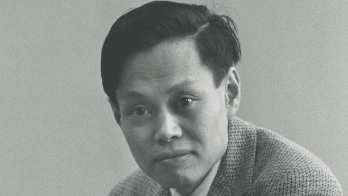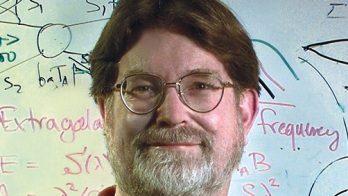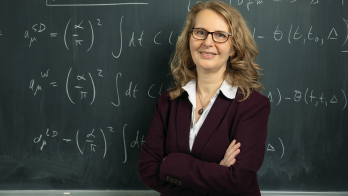
Within CERN circles, Armin Hermann is mainly known as one of the co-editors of the authoritative History of CERN volumes covering the period from the beginnings of the Organization up to 1965. But he did so much more in the field of the history of science.
Armin Hermann was born on 17 June 1933 in Vernon, British Columbia, Canada and grew up in Upper Bavaria in Germany. He studied physics at Ludwig Maximilian University in Munich and obtained his doctorate in theoretical physics in 1963 with a dissertation on the “Mott effect for elementary particles and nuclei of electromagnetic structure”. He worked for a few years at DESY and performed synchrotron-oscillation calculations with an IBM 650 computer. Subsequently, Hermann decided to change his focus from physics proper to its history, which had preoccupied him since his student days.
Hermann was the first to occupy a chair in the history of science and technology at the University of Stuttgart – a chair not situated either at a science or mathematics faculty but rather among general historians. During his 30 year-long tenure, he authored important monographs on quantum theory, quantum mechanics and elementary particle theory. He wrote books on the history of atomic physics titled Weltreich der Physik: Von Galilei bis Heisenberg, The New Physics: The Route into the Atomic Age, and How Science Lost its Innocence, alongside numerous biographies (including Planck, Heisenberg, Einstein and Wirtz) and historical studies on companies, notably on the German optics firm Carl Zeiss. All became very popular among the physics community.
Meanwhile at CERN, the attitude among physicists towards studies in the history of science was rather negative – the mantra was “We don’t care of history, we make history”. However, in 1980, the advisory committee for the CERN History Project examined a feasibility study conducted by Hermann and decided to establish a European study team to write the history of CERN from its early beginnings until at least 1963, with an overview of later years. The project was to be completed within five years and financed outside the CERN budget. Hermann was asked by CERN Council to assume responsibility for the project, and from 1982 to 1985 he was freed from teaching obligations in Stuttgart to conduct research at CERN. He became co-editor of first two volumes on the history of CERN: Launching the European Organization for Nuclear Research and Building and Running the Laboratory, 1954–1965. A third volume covering the story of the history of CERN from the mid-1960s to the late 1970s later appeared under the editorship of John Krige in 1996.
Armin passed away in February 2024 in his home in Oberstarz near Miesbach, nestled among the alpine hills, which he had always felt attached to and which was also the main reason why he declined several tempting calls to other renowned universities. His wife Steffi, his companion of many decades, was by his side to the very end. Many historians of physics, science and technology in Germany and abroad mourn the loss of this influential pioneer in the history of science.







